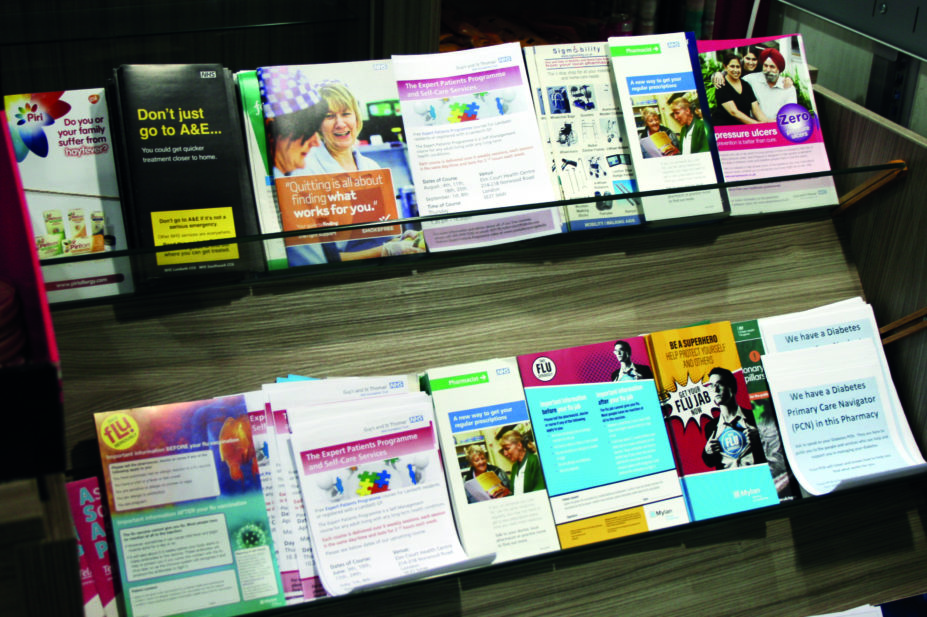
MAG / The Pharmaceutical Journal
There is significant variation in the commissioning and delivery of public health services in community pharmacies across England, according to a study published in BMJ Open (online, 10 July 2017)[1]
.
The study also found that provision of public health services by community pharmacies is not always related to need.
The study, which gathered information on all 152 local authorities in England via freedom of information requests (FOIs) and data from PharmOutcomes and the Pharmaceutical Services Negotiating Committeee (PSNC) database for the financial year 2014/15, found that out of a total 833 commissioned services reported across England, four services were commissioned by more than 90% of local authorities (LAs): emergency hormonal contraception (EHC); smoking cessation; supervised consumption of methadone or other opiates; and needle and syringe programmes.
EHC, smoking cessation and supervised consumption of methadone or other opiates were provided by at least 45% of all pharmacies in England, and supervised consumption and needle and syringe programmes were the most frequently used services, with more than 4.4 million individual supervisions and more than 1.4 million needle packs supplied.
NHS Health Checks and alcohol screening and brief advice were commissioned by fewer LAs (32% and 15% respectively). A range of other services, including weight management, blood testing and tuberculosis services, were commissioned by fewer than 10% of LAs.
During the financial year 2014/15, it was found that pharmacies provided more than 200,000 consultations for supply of EHC, more than 30,000 supplies of free condoms and almost 16,000 chlamydia screening kits. In addition, more than 55,000 people registered to stop smoking in a community pharmacy, 30,000 were screened for alcohol use and more than 26,000 NHS health checks were delivered.
“We have shown that many thousands of people across the whole of England use pharmacy public health services,” said Janet Krska, professor of clinical and professional pharmacy at the Universities of Greenwich and Kent at Medway and one of the authors of the study.
“This demonstrates just how significant the contribution that pharmacies make to improving public health is, at national level,” she added.
But the researchers found no relationship between the services commissioned and relevant measures of need — services were not concentrated in areas where the local community was most likely to benefit. For example, 14 LAs did not report a commissioned pharmacy smoking cessation service, despite the fact that seven of them had adult smoking rates above the national average.
“It just confirms what many people know — that local commissioning appears to support pharmacy services in some areas but not in others, regardless of the potential for local populations to benefit, despite commissioning being in line with Pharmaceutical Needs Assessments,” said Krska.
She said a national or regional commissioning process with national specifications and local or regional decisions on the extent to which any individual service is commissioned, based on need, would be more successful.
The report pointed out that services had been decommissioned for a combination of reasons: lack of funding; lack of evidence of their effectiveness; and cost-effectiveness of those services. But, as a result, there is now a “mosaic” of public health services being offered through pharmacies across the country.
The Pharmaceutical Services Negotiating Committee (PSNC) monitors local commissioning of pharmacy services via information provided by Local Pharmaceutical Committees and, according to Alastair Buxton, PSNC Director of NHS Services, variability in public health commissioning across England is seen and expected as a result of both population need and the size of local public health budgets.
“The squeeze on local government budgets is clearly having a detrimental impact on the provision of public health services to local communities, including those provided by pharmacy teams,” he said.
“At a time when the future sustainability of the NHS is going to be determined by the success or otherwise of initiatives to prevent people developing long-term conditions, this seems particularly short-sighted.”
The chief executive of the Company Chemists’ Association, Nanette Kerr, said the results are not surprising but suggested that “a more joined-up approach to service commissioning would be helpful and inclusion of community pharmacy representatives on local authority committees would be good place to start.”
But, Izzi Seccombe, chairman of the Local Government Association’s Community Wellbeing Board said that community pharmacies themselves need to change.
“Pharmacies have the potential to play a critical role in improving the health of communities by offering convenient and equitable access to health improvement services, [but they] need to do more to explain what they can offer to local public health commissioners,” she said.
On 3 August 2017, the Local Government Association (LGA) warned that, due to budget cuts, sexual health services in England are “at a tipping point” as patient visits increase. The LGA said that patients could face a poorer-quality service and longer waits if additional funding is not provided. Despite this, data shows that diagnoses of sexually transmitted infections have fallen in the past year and people are taking more responsibility for their sexual health.
References
[1] Mackridge A, Gray N, Krska J. A cross-sectional study using freedom of information requests to evaluate variation in local authority commissioning of community pharmacy public health services in England. BMJ Open 2017;7:e015511. doi:10.1136/ bmjopen-2016-015511


